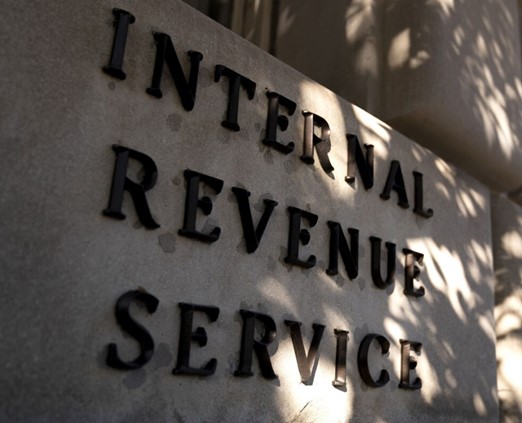President Joe Biden is proposing to double the size of the IRS by hiring nearly 87,000 new employees over the next decade, as part of a sweeping plan to chase down tax cheats.
The hiring spree, part of a bid to increase IRS funding by $80 billion, would be phased in to give the department time to adjust, the Treasury Department said in a report earlier this year.
Of course, President Biden will not be in office for the next 10 years, so his plan to double the IRS has little chance of becoming a reality, unless Democrats retain control of Congress over that period, which looks impossible. The next Republican president or Congress can easily scrap the plan, so it may never actually get off the ground. Think November 8.
In any case, I thought it would be insightful to look into why President Biden and apparently a lot of Democrats would want to do this. There are a variety of reasons, but chief among them is the desire to collect more taxes from the American people and businesses.
The Treasury Department’s IRS workforce says the president’s plan would never grow the IRS by more than a “manageable 15%“ each year. And its total budget would increase by about 10% annually.
At the same time, the administration wants to require financial institutions and other businesses to report a lot more information about the money coursing through their customers’ accounts – a proposal designed to put the fear of the IRS in the hearts of potential tax dodgers.
It’s part of a concerted effort by the administration to go after uncollected taxes owed by large corporations, partnerships and wealthy individuals – money Democrats want to use to finance their big-ticket spending plans.
“The president’s compliance proposals are designed to ameliorate existing inequities by focusing on high-end evasion,” the IRS workforce report says. The agency said uncollected taxes in 2019 amounted to about $554 billion.
About 80% of that tax gap is attributable to people underreporting their incomes or taking too many deductions. The rest is people either not filing returns at all, or doing their taxes correctly but failing to pay what they owe.
Altogether, the administration says its proposal would generate $700 billion over a decade.
While the administration intends to boost scrutiny of high earners, it says audit rates for those making less than $400,000 would not increase under the proposal. I’ll believe that when I see it.
The push comes after years of tight IRS budgets under Republicans. The idea of going after tax cheats is now drawing bipartisan support, we’re told, with a growing number of Republicans saying they support boosting the department’s enforcement capabilities, although some are critical of the new income reporting requirement proposals.
One of the questions hovering over the administration’s plan is how the IRS could efficiently absorb such a huge increase in funding – which the Treasury report is designed to answer.
Most of the administration’s $80 billion budget hike would come in the form of so-called “mandatory spending” which would not have to be approved each year by Congress. That’s intended to provide the agency, which has sometimes seen wild budget swings, with a more reliable stream of funding.
The money would be used not just to increase audits but also to modernize the agency’s computer systems and improve other taxpayer services.
Beefing up enforcement would generate $240 billion in savings over a decade, the Treasury says.
The administration projects it could generate another $460 billion over the next decade through the increased income reporting requirements.
Financial institutions would have to report the gross inflows and outflows on all business and personal accounts. So-called payment settlement entities, like PayPal, foreign financial institutions and cryptocurrency exchanges would also be subject to additional reporting requirements. Businesses would have to alert the IRS to cryptocurrency transactions amounting to more than $10,000.
“Despite constituting a relatively small portion of business income today, cryptocurrency transactions are likely to rise in importance in the next decade,” the report said.
In a briefing with reporters, Treasury officials acknowledged the reporting requirements would produce a mountain of information that would take some time for the IRS to parse.
The main benefit of the proposal, they said, would be deterrence. Because tax cheats would know the government can peer into previously opaque streams of money, they’d be less likely to cheat on their taxes, officials said.
Finally, Biden’s proposal to double the size of the IRS will likely never see the light of day. It looks inevitable the Republicans will take control of the House of Representatives on November 8 and maybe even the Senate.
I do not believe a majority of Republicans would support Mr. Biden’s plan. But I thought you might like to know what the president wants to do if the Democrats remain in control. The mainstream media is not going to tell us about it, of course. What else is new?


Sorry, comments are closed for this post.